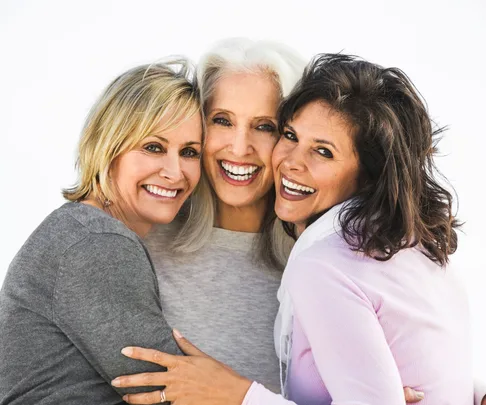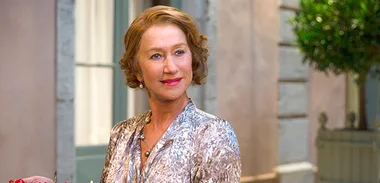Ageing is no longer a dirty word; we are living longer, we are living better and we are celebrating our extra years in style and good health.
Even the most traditionally ageist areas of society – the beauty, fashion and film industries – are now celebrating the positives of ageing. This year, 70-year-old Helen Mirren was made the face of L’Oréal Paris, Judi Dench turned 80 and continues to be a Hollywood trailblazer, and octogenarian models are in higher demand than ever before. Life after 60 is no longer about pearls, perms and winding down; it is about flair, grace and embracing the extra decades with gusto.
In New Zealand, females live until an average age of 83, and males until 79.5, putting us in the top 10 longest living nations. Dr Hamish Jamieson, a medical specialist and researcher in the health care of older people, says it’s an advance that shows no sign of slowing down. “With increased knowledge and treatments now available, living towards 100 is not unrealistic,” he says. Indeed, centenarians are one of the fastest growing age groups in the world. A United Nations study projects the number of people aged 100 or over will increase to 3.2 million by 2050. In 2012 the number sat at just 343,000. “A century ago, the average life expectancy was about 60,” says Dr Jamieson.
Sixty! An age today when some are at the height of their careers, and with newly empty nests and disposable income to spend on activities they’ve dreamed of for years – like their big OE. A study by the Ministry of Business, Innovation and Employment shows the fastest growing group of travellers is those aged 60-69 years old, followed by people of 70-plus.
Despite fears over the increased financial burden growing rates of elderly may have on society, figures tell a different story. Statistics New Zealand data shows it’s a stage in life when people are giving back, with those aged 65-74 participating in the most volunteer work in the country.
“[Living longer] is a huge change in New Zealand, but it is a positive change,” says Dr Jamieson. “People are concerned about the financial costs of ageing, but in reality we have a lot more healthy people contributing to society and playing an important role.”
That’s because the years we are adding to our lives are generally spent in good health. A century ago we were frail and dependent in the final two years of life; this is still the case – but while that used to occur at about 58, it now happens in our late 70s or early 80s. It’s called a ‘compression of morbidity’ and it means we’re not only living longer, we are doing so in good health.
And we’re doing so happily, says neuroscientist and psychological researcher at Auckland University, Dr Donna Rose Addis. There is a reason we all know a grumpy relative who has mellowed with age – studies show that as people get older they tend to become more optimistic.
“There are lots of things that get better as we age, and one of these is emotion regulation,” Dr Addis explains. “Research shows older adults tend to focus more on the positive. It’s called the ‘positivity effect’. As you get older there are changes in your goals, you are reflecting and putting focus on how you feel, rather than things you need to do, and you’ve had a life’s worth of practice at regulating emotions.”
This is reflected by the latest New Zealand General Social Survey, which shows people aged 65-plus are the most fulfilled age group in society overall – with 91 per cent satisfied or very satisfied with their lives.
And Dr Addis says while dementia risk increases with age, there is also evidence that our semantic memory increases too – that’s the general knowledge part of the memory bank, and it means our older people have a lot of information to share.
So why are we living longer? Undoubtedly advances in health and medicine have a huge part to play. “These include better detection of cancer and heart disease and better treatments,” says Dr Jamieson. “We have not won the war against these diseases but we have made major progress in how we treat them.”
He says public health measures like better sanitation and access to nutrition have also increased lifespans, as has awareness of the importance of individual health care.
There is still a difference in life expectancy of more than seven years between Maori and non-Maori, although that gap has narrowed by two years since 1995. The latest mortality statistics from the Ministry of Health show Maori have significantly higher rates of heart disease, diabetes and cancer. Dr Jamieson says there are multiple factors causing this, and those employed in health policy are working hard to address them.
Dr Helen Smith, a general practitioner and holistic health care specialist, says as our lifespans have increased so has our desire to live well. Addressing issues around menopause is a prime example.
“It used to be something that wasn’t talked about a lot,” says Dr Smith. “But now women are saying, ‘I am going to live another 30 years [after menopause] and I don’t want this to be the end of my sex life.’ There is more conversation about what we can do to improve it.”
Dr Smith regularly sees patients who want to try lifestyle adjustments and natural medicines to deal with menopause, and says there has been a vast improvement since the 1950s. “Then, a lot of women were having hysterectomies around their late 40s and 50s – there was a lot of heavy bleeding and a lot of Valium taken.”
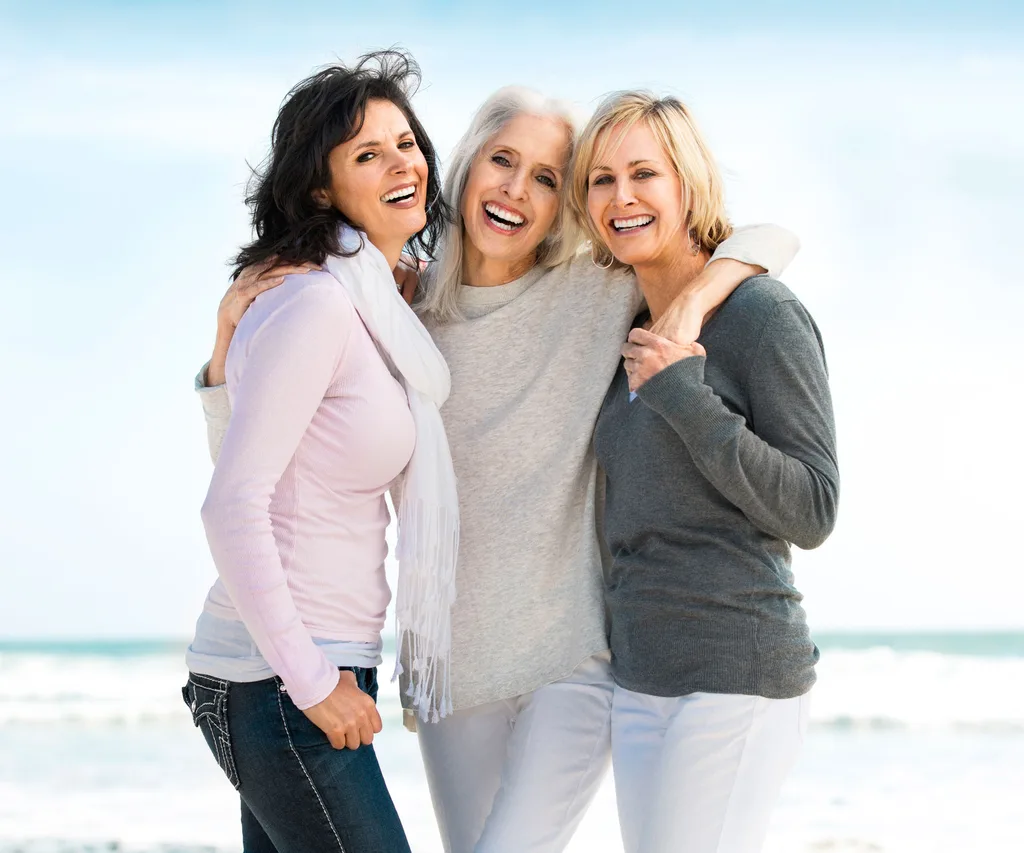
“There are lots of things that get better as we age, and one of these is emotion regulation.”
While there has been plenty of publicity around the negative health effects of ageing in modern society – such as diabetes and heart disease – Dr Jamieson says they have been far outweighed by the advances. And studies continue to refine this good work, with New Zealand leading the charge in longitudinal research.
“Ageing is a phenomenon the world has never dealt with before,” he says. “One of the best ways [to understand ageing] is to study data from large numbers of people and look for patterns and risk factors for particularly bad outcomes, and start to deal with those.”
With this in mind, New Zealand has recently implemented InterRAI, a standardised health assessment of older people across the country by trained medical professionals. The results are recorded in a shared computer system, and are used to guide patient care and identify trends and areas for improvement. It is used in 30 countries around the world, but New Zealand is the first to implement it nationwide.
Furthermore, in July this year The Dunedin Multidisciplinary Health and Development Study garnered international attention when it released a method to measure the pace of ageing. The longitudinal study of 1000 people born in Dunedin from 1972-73, used 18 biomarkers to determine whether the participants were ageing faster or slower than their peers. The difference was significant, with biological ages ranging from 30 to nearly 60 years.
The study concluded that “already, before midlife, individuals who were ageing more rapidly were less physically able, showed cognitive decline and brain ageing, self-reported worse health, and looked older”.
The study is significant because it identifies causes of ageing, and having this information means therapies could be developed for rejuvenation.
Our biological age is something we do have some control over, says Dr Jamieson, and while it’s difficult to measure exactly how much of our fate is shaped by what we do and how much is determined by genes, lifestyle does have a significant impact.
“Both genetics and lifestyle factors influence rates of ageing, but detection and subsequent changes to lifestyle factors can help negate the risk. For example, some people are known to have genes that predispose them to heart disease, but a healthy diet and exercise will reduce the risk of them developing heart disease over time.”
It’s an example that demonstrates a key message for ageing in a modern world – a healthy lifestyle with a diet low in refined and processed foods, regular exercise, time for relaxation and social interaction are crucial for a long, healthy life.
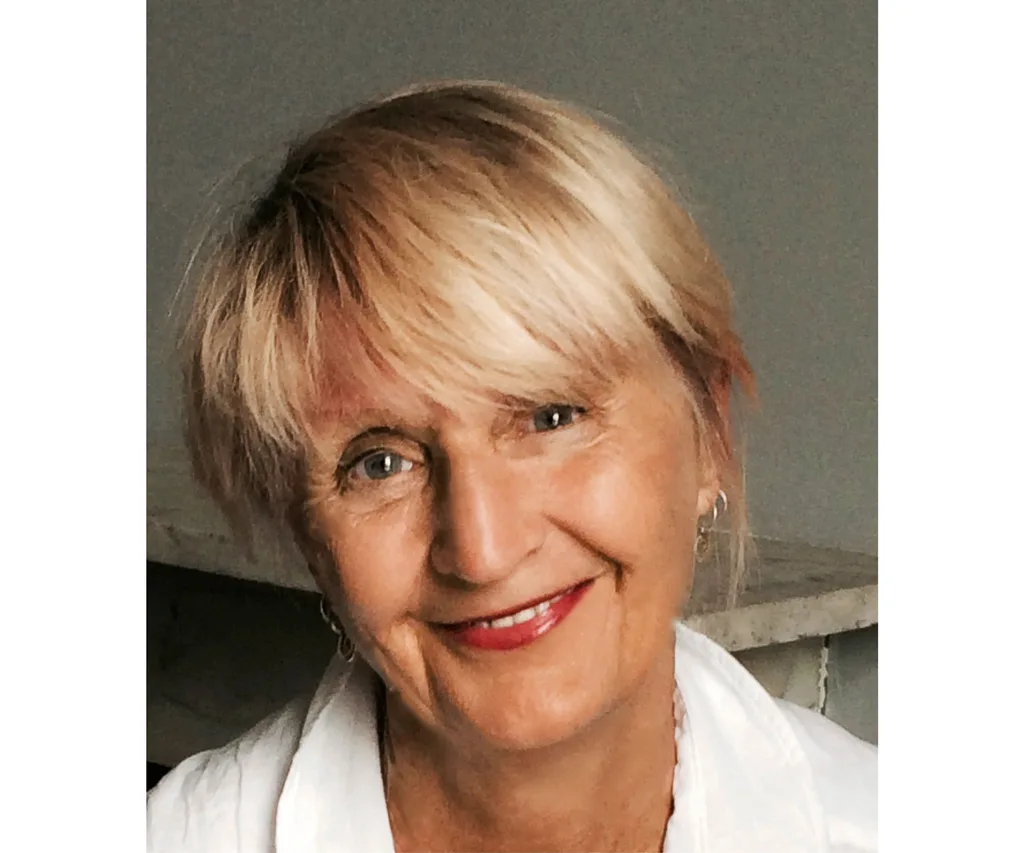
68 going on 18…
Paula Jones is 68, has just produced her first feature film, sails competitively and has the energy of a 20-year-old. She recently sold her house, is living out of a suitcase and says she “feels like a teenager”.
Approaching her eighth decade, the grandmother-of-six is at the height of her career. At the age of 62 she left her role as head of production at South Seas Film and Television School to set up a production company and pursue her goal of making a film.
Her dream was realised in 2011, when she was approached to produce Hip Hop-eration – the charming documentary about the world’s oldest dance group. “I arrived at the New Zealand Film Commission [NZFC] shaking in my boots, but determined to give it a go,” says Paula. “I said to Katherine Fry, the development officer, ‘I know I’m a bit late attempting to be a producer,’ and she said, ‘Age is not a factor around here.’ I love her for that moment.”
The film won multiple awards, including best documentary at The New Zealand Film Awards. After ticking off the goal, Paula planned to retire to a small beach house and work part-time. She got as far as selling her house, but semi-retirement was abandoned when opportunities started flooding in.
Just as she secured a part-time job at The Mind Lab by Unitec, the NZFC offered her development funding for a documentary to be made in China. “My attitude to life is whatever happens, I’ll run with it. It is the intellectual and creative stimulation that keeps me young,” says Paula.
She stored her possessions, organised to stay with friends, and got to work. “Every day is a learning curve for me. I was standing recently in a mountain village in China, well off the beaten track, and thought, ‘Wow! How did this happen to me?’”
Her ‘go get ’em’ attitude has got her through tough times. Paula was raising four children on her own when she put herself through training college and university and was averaging three hours sleep a night. “I learned to live like that – to work hard and sleep hard.”
She has no exercise regimen or diet plan, but loves the outdoors and sails and swims. “I love the ocean and the wind, and the rougher the better.”
Paula says working with young people also helps keep her young. “I have worked with young creatives all my life – I love the energy and creativity they bring, I buzz on that. I would like to stop one day, but then I’ll do my PhD to keep my brain going.”

An ‘old soul’ at 22
Marie Drew is a 22-year-old who loves nothing more than knitting in a café with friends or pottering in the garden. Her ideal night out involves dressing up in a full-length art-deco gown and drinking cocktails.
“My friends are a wide range of ages,” says Marie, a self-taught sample seamstress who does commission work. “I am used to being the youngest. At school my friends called me an old soul.”
Her ‘older’ hobbies started young – she learned patchwork at 10 and became an avid knitter in her teens.
“My mum, my friends and I have become fairly notable among the café staff in Napier – we unashamedly bring in our needles and sit there knitting and discussing our ideas. I love creating things – sewing, baking and gardening.”
Marie attended her first Napier Art Deco Weekend as an eight-year-old and is now part of a dedicated clique of Hawke’s Bay residents who “take any opportunity to dress up for cocktails or go for a cycle ride in tweed”.
While those in their 20s often rush full speed through life, Marie has chosen a more mindful pace.
Her flat has very little outdoor space, so she spends hours in her mother’s garden, where she grows vegetables from seed.
“Gardening gets you outside and it’s quite soothing and meditative. It brings you back in touch with the real world.”
Marie would love to see more young people involved in craft.
“I think they would find it very rewarding, even if it’s just a weekend knitting project. I do see it gaining in popularity, which is really nice.”
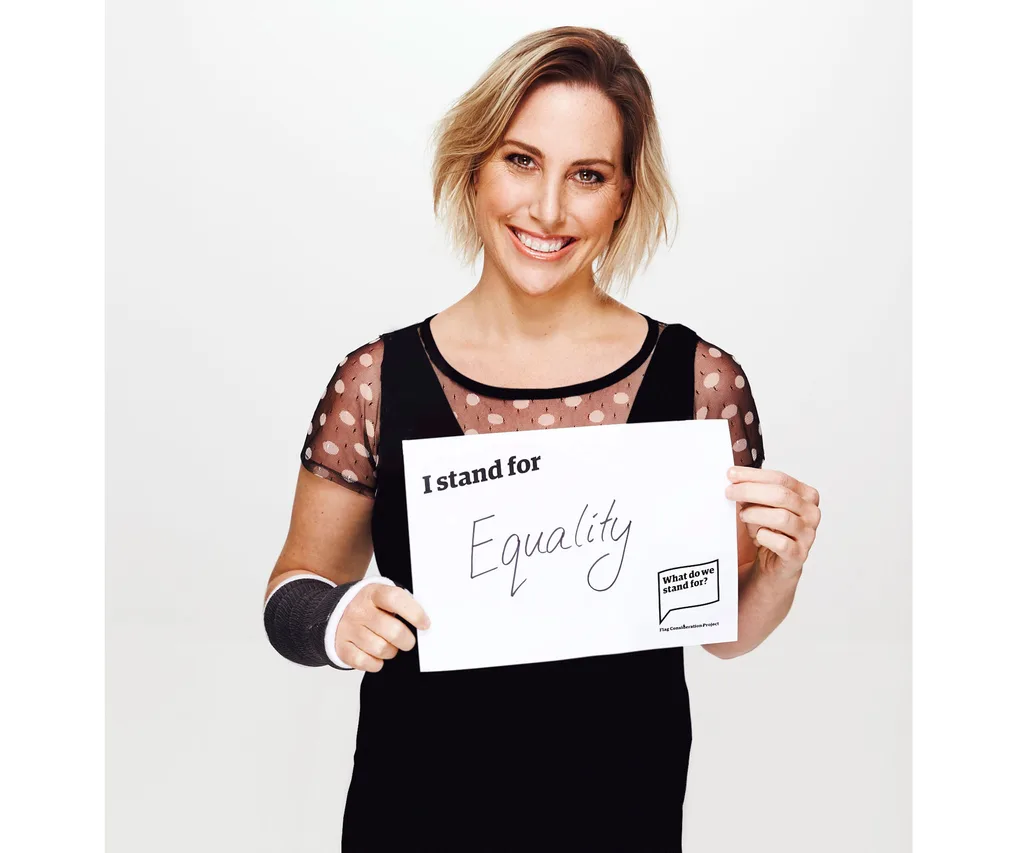
Senior writer Nicola Russell.
How old am I?
With advances in technology, how well we are ageing is no longer a guessing game. Dr Helen Smith, an Auckland-based GP and natural health practitioner, runs comprehensive ‘well checks’, which include a measure of a patient’s biological age.
With this in mind I head to her clinic to find out how I’m faring in the age department. I am apprehensive – although I’m not one to sit still for long, I can always find something more ‘urgent’ to do than exercise, and while my diet is mostly healthy, I have a longstanding love of coffee in the morning, chocolate in the afternoon and a glass of wine in the evening (or three depending on the occasion and/or stress levels!). How will these vices affect my scores?
Am I about to find out that as a 35-year-old mother-of-one, I have a biological age of 50?
In my favour, the month prior to the test has seen my diet undergo a fairly major overhaul. Like many, I use the fundraiser Dry July to focus on my health – ditching not only alcohol but also sugar and processed foods for the month. It is a bid for more energy and to reboot my habits – you don’t crave junk food when you are stuffing a constant stream of healthy food into your mouth. So as well as eliminating inflammatory foods from my diet, I have been putting nutrient-rich food back in. It turns out to be one of my better decisions.
When I climb on the Tanita scale, which assesses weight, height, age, muscle mass, fat and bone density as a measure of biological age, the number it spits out is unexpected – 24! Surely the changes I’ve made can’t have already affected my score? But Dr Smith says yes, refining my diet will have bumped my biological age down.
“Keeping your diet free of processed sugar or junk foods, and rich in fresh vegetables and slow-burning wholefoods, provides cell nutrients to support your metabolism and builds muscle rather than fatty tissues,” she explains. “This leads to a better metabolism.”
Further blood tests show there is still work to be done. Like many busy women, my cortisol levels are low, indicating adrenal fatigue. Low calcium levels signal low vitamin D, which is common during Kiwi winters when the sun is weak. I am prescribed herbs for my adrenals and vitamin D for a boost. And with exercise key for cell metabolism and health, Dr Smith also recommends I get my walking shoes on.
I leave happy. Information is power, and more than ever our health is in our hands. For more on Dr Smith’s ‘well woman’ or ‘well man’ checks, go to aucklandholisticcentre.co.nz
Photography by Getty Images, Mike Rooke, Mark Roberts and courtesy of Paula Jones and Marie Drew.
